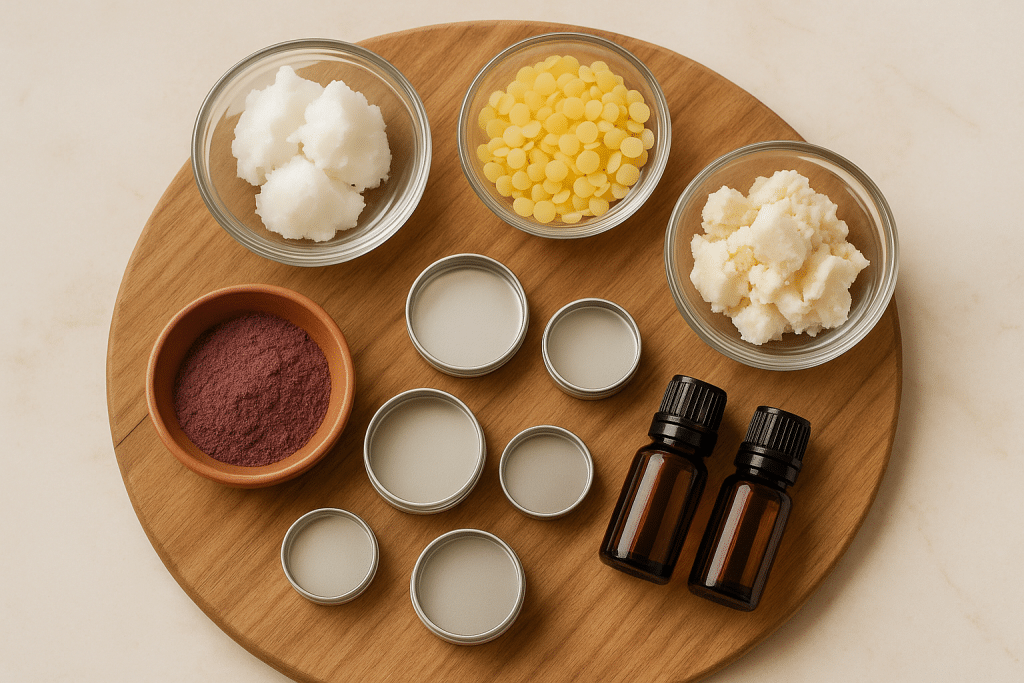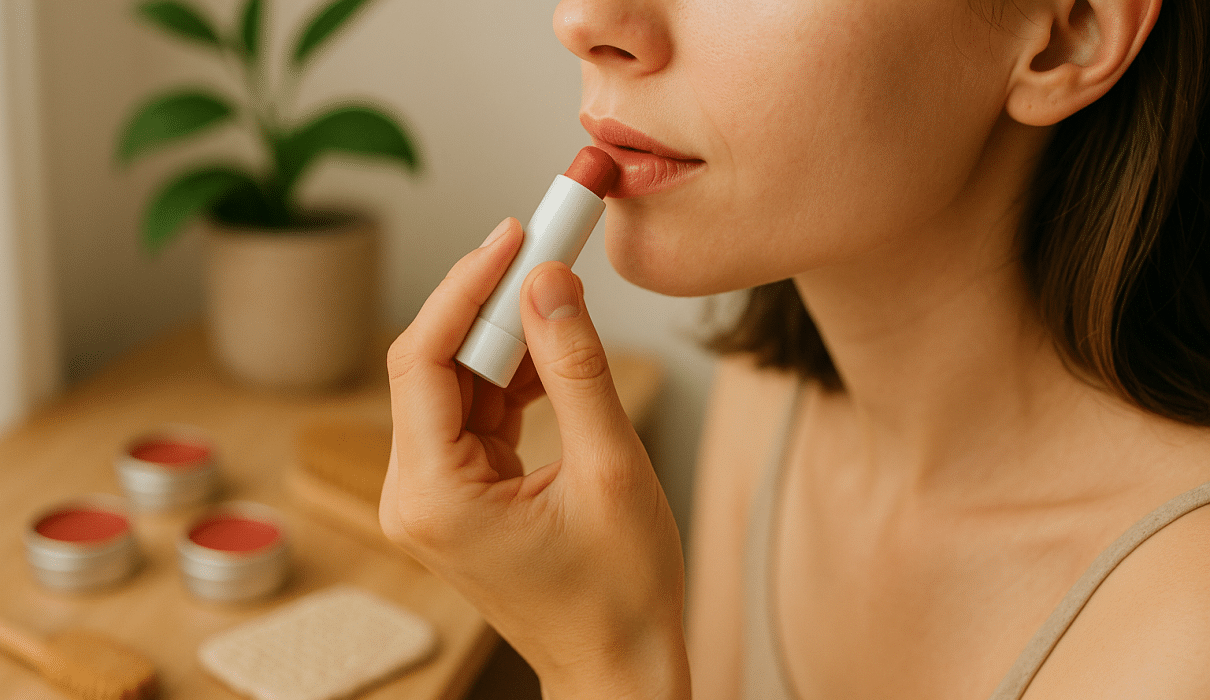Ever asked yourself, “What’s really in your lip balm?” If the answer is no—now’s the time. Most commercial lip balms are packed with synthetic ingredients that may dry out your lips, cause irritation, or even expose you to toxins over time.
But don’t worry—you don’t have to give up soft lips to protect your health. In fact, we’ll show you 3 simple, natural DIY lip balm recipes you can make at home in under 15 minutes. Say goodbye to petroleum jelly, and hello to safe, sustainable beauty.
🧪 What’s Really in Your Lip Balm?
Let’s break down a few common lip balm ingredients you’ll want to avoid:
| Ingredient | Why It’s Problematic |
|---|---|
| Petrolatum/Mineral Oil | Derived from petroleum; may clog pores and cause dependency. |
| Fragrance | A vague term often hiding hormone disruptors. |
| Parabens | Used as preservatives; linked to endocrine issues. |
| Artificial Colors | May be derived from coal tar or aluminum compounds. |
Focus Keyword Alert: If you’ve never thought to check what’s in your lip balm, this is your wake-up call.
💡 Want to avoid these altogether? Keep reading for DIY alternatives.
🧴 3 Safe & Nourishing DIY Lip Balm Alternatives
All recipes are:
- Free from plastic
- Made with 100% natural, food-grade ingredients
- Customizable with essential oils or tints
🥥 1. Coconut-Honey Healing Lip Balm
Perfect for dry, cracked lips
Ingredients:
- 1 tbsp coconut oil
- 1 tsp beeswax pellets
- ½ tsp raw honey
- Optional: 1 drop lavender essential oil
Instructions:
- Melt beeswax and coconut oil in a double boiler.
- Remove from heat, stir in honey and essential oil.
- Pour into a small tin or old lip balm tube.
- Let cool for 1–2 hours before using.
✅ Why it works: Coconut oil hydrates, honey heals, and beeswax locks in moisture.
🌺 2. Tinted Hibiscus Lip Balm
A natural rosy glow with zero synthetic dyes
Ingredients:
- 1 tbsp shea butter
- 1 tsp beeswax
- ½ tsp hibiscus powder
- Optional: 1 drop vanilla extract
Instructions:
- Melt beeswax and shea butter together.
- Stir in hibiscus powder.
- Pour into small tins. Let set.
✅ Why it works: Hibiscus gives a soft tint + antioxidants, shea butter soothes.

🍯 3. Vegan Candelilla Lip Balm
For a cruelty-free, plant-based alternative
Ingredients:
- 1 tbsp candelilla wax
- 1 tbsp almond oil
- 1 tsp vitamin E oil
- Optional: 1 drop peppermint essential oil
Instructions:
- Melt wax and almond oil.
- Add vitamin E and essential oil.
- Pour into containers and let set.
✅ Why it works: Candelilla wax is a vegan substitute for beeswax with a smooth finish.
📦 Eco-Friendly Packaging Ideas for Your DIY Lip Balms
- Reuse small glass jars or tins
- Repurpose old lipstick tubes
- Label with recycled kraft paper for gifting
- https://www.amazon.eg/-/en/Areej-Lip-Balm-Strawberry-Flavor/dp/B08X69Y24W/ref=asc_df_B08X69Y24W?mcid=32bc9f23036e320bb6f44cd6dde6bed8&tag=egoshpadde-21&linkCode=df0&hvadid=725247347963&hvpos=&hvnetw=g&hvrand=13405419731829282475&hvpone=&hvptwo=&hvqmt=&hvdev=c&hvdvcmdl=&hvlocint=&hvlocphy=9112362&hvtargid=pla-2368770619182&psc=1&language=en_AE&gad_source=1
🌿 Why DIY Lip Balm Is Better for You and the Planet
✔ No plastic waste
✔ No preservatives or toxins
✔ Lower cost per unit
✔ Empowerment through ingredient transparency
💚 You’re not just making lip balm—you’re reclaiming control over your beauty products. Discover more about sustainable beauty trends that align with this ethos.
What’s in Your Lip Balm?
Q1: Is beeswax safe for lips?
Yes, but choose organic, ethically sourced beeswax when possible. Or opt for candelilla wax as a vegan alternative.
Q2: Can I add SPF to my DIY lip balm?
You can add a few drops of raspberry seed oil or carrot seed oil, which offer some natural UV protection.
Q3: How long does homemade lip balm last?
Up to 6 months when stored in a cool, dry place with a clean container.
Q4: What essential oils are safe for lips?
Lavender, peppermint, vanilla, and rose—always use food-grade oils in small amounts.
It’s Time to Read the Label
If you’ve never looked into what’s in your lip balm, now you know—it matters. And better yet, you don’t need to rely on store-bought options. With just a few ingredients, you can create your own nourishing, chemical-free alternatives that are good for your lips and the planet. For a natural makeup look using homemade products, check out our guide on natural makeup look using homemade products.

